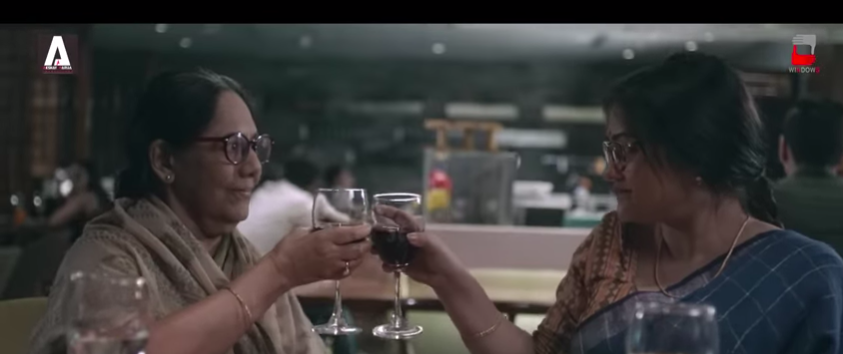
Single parenting is not an easy job. Like so many other jobs in the world, it is difficult. But then, nobody ever promised that life would be easy and we would always walk on a bed of roses, without encountering any thorns.
My journey as a single mother began when my son was just one and a half years old. But in the true sense, I have been mothering him singly since the day he was born. I was going through a very turbulent phase of my life at that time. There was no bliss in my marriage and finally, one and half years after his birth, his parents got separated. So I was not a single mother by choice, but circumstances forced me to be one. And I have never held any regrets for that.
"Depression is the flaw in love. To be creatures who love, we must be creatures who can despair at what we lose, and depression is the mechanism of that despair.", wrote Andrew Solomon in his bestselling book "The Noonday Demon: An Anatomy of Depression". We who have gone through the bitter stage of breaking a marriage know very well how depressing this experience can be. Every heartbreak is painful. But this is especially true in case of marriages. We all start our marital life with a lot of expectations, with the hope of finding love, trust and companionship throughout our lives. So when it breaks midway, all it leaves behind is depression. In my case, coping with this phase became a lot easier because at least I had my son- someone to love and cherish for the rest of my life. So even a life without a partner seemed less terrible. A life which still had some purpose left- to raise another human being carved out of my own flesh and blood.
Since I have been a single mother for more than five years, I think I can share some of my experience here. During all these years, I am taking all the decisions regarding him alone. Right from which school he would attend to which paediatrician he would visit- I have been responsible for everything.
Most schools now-a-days are accommodative of single parents. I indicated in the school admission form itself that I was a single parent. On the day of parents' interview, I attended the interview alone. I still vividly remember the day. All other 'normal' parents were interviewed before me. Another single mother, who was a widow, was interviewed just before me. I was the last in the queue. On that day, sitting in a cold chair outside the principal's office on that cold December morning, how I wished I had a partner like everybody else, who would be equally interested in my son's well-being. Or sometimes, when planning for a vacation trip with my child, how I wished we were a normal family- a family consisting of both the parents and the child. Then perhaps we would have planned for the trip together.
The hardest part of single parenting is, perhaps, making peace with your past. Each time my son was required to make a family tree or a family photograph, I had to explain to him that unlike the families depicted in his text-book, his family lacks a father figure. Each time he got curious about his father and assumed his grandfather from his mother's side as his father or took a visiting male relative as his father, I had to make him understand that unlike his friends fathers, his father does not live with us. This is hard to understand for a child, especially given the fact that there is a depiction of perfectly blissful families in commercial ads, cartoons, school textbooks, or children's storybooks. We are oblivious of the presence of other alternative kind of families, like single parent families.
Sometime back, I came across an article on internet about "empty nest syndrome" and how it affects single parents especially. This made me contemplate on my own future reality. It's a known fact that my boy will grow up soon and he'll leave his mother one day to find his own place in the world. Of course, we mothers also want to see our sons as independent human beings. But this takes us to the inevitable conclusion- what will the mother bird do once her chicks learn to fly on their own and leave the nest she has built so lovingly? She'll feel lonely, no doubt. These feelings of loneliness will probably be exacerbated in the absence of a partner. But lets face the reality: there's no way out for us. So I make a conscious effort to have my own social circle, nurture my own passion for reading and writing, so that when the time comes, I suddenly don't find myself out of job all of a sudden. When you don't have anybody to give your love and attention, be it your partner or children, don't consider your life lacks love. "Love is a state of Being. Your love is not outside; it is deep within you. You can never lose it, and it cannot leave you.", wrote Eckhart Tolle.
Lastly, when life gets too overwhelming, or emotions seem too out-of-control, just silently utter this prayer:
"God grants me the serenity
To accept the things I cannot change,
The courage to change the things I can,
and the wisdom to know the difference."
This post titled "5 Lessons I Learnt On My Journey As A Single Parent" has been published on Women's Web as a Featured Post. Featured Posts are a careful selection of highly relevant and interesting posts picked up by the editor's of Women's Web each day. To read the full story, Click here.
This post titled "5 Lessons I Learnt On My Journey As A Single Parent" has been published on Women's Web as a Featured Post. Featured Posts are a careful selection of highly relevant and interesting posts picked up by the editor's of Women's Web each day. To read the full story, Click here.






